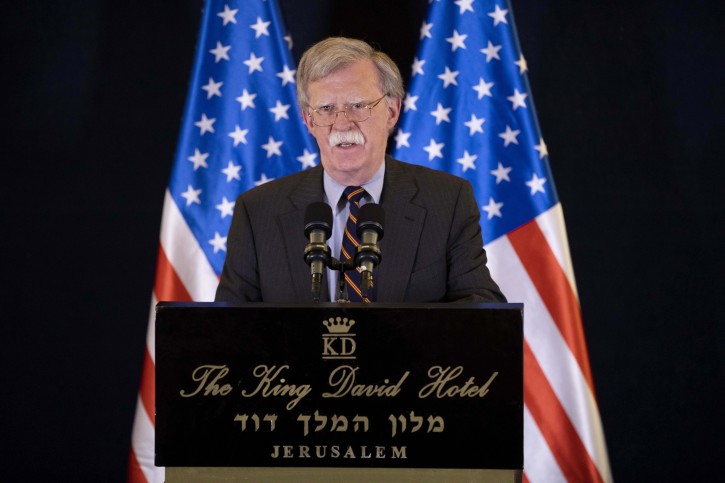
Jerusalem – The Trump administration is not discussing possible U.S. recognition of Israel’s claim of sovereignty over the Golan Heights, U.S. National Security Adviser John Bolton said.
Israel captured much of the Golan from Syria in a 1967 war and annexed it in a move not endorsed internationally. In May, a senior Israeli official said that U.S. recognition could be forthcoming within months.
“I’ve heard the idea being suggested but there’s no discussion of it, no decision within the U.S. government,” Bolton told Reuters during a visit to Israel. “Obviously we understand the Israeli claim that it has annexed the Golan Heights – we understand their position – but there’s no change in the U.S. position for now.”
Palestinians seek other territories that Israel occupied in 1967 – the West Bank, Gaza Strip and East Jerusalem – for a future state. U.S.-backed talks on that goal stalled in 2014.
The Trump administration has tried to restart the diplomacy but has been cold-shouldered by Palestinian President Mahmoud Abbas since it recognized Jerusalem as Israel’s capital last December.
Washington has also signaled possible accommodation with Israel’s West Bank settlements, dropping the term “occupied” from some U.S. documentation about the territory. Most world powers deem the settlements illegal.
Asked whether the Trump administration envisaged Palestinian statehood as the way forward, Bolton sounded circumspect.
“I think it’s been the U.S. view for a long time that ultimately Israelis and Palestinians are going to have to agree on this,” he said. “Nobody’s going to impose a peace in that respect.”
Whether peace talks with Abbas could resume was “up to him,” Bolton said.
The Trump adviser was more forthright about Washington’s trimming of funds for United Nations Relief and Works Agency (UNRWA), which extends aid to Palestinians displaced by the 1948 war of Israel’s founding and to millions of their descendants.
“UNRWA is a failed mechanism. It violates standard international law on the status of refugees. UNRWA’s program is the only one in history based on the assumption that refugee status is hereditary, and I think it is long overdue that we have taken steps to reduce funding,” Bolton said.
UNRWA and the Palestinians have warned that the cuts could exacerbate hardship in Gaza, an enclave that has been under Israeli and Egypt blockades designed to isolate its Islamist Hamas rulers. Abbas, Hamas’ Palestinian rival, has also restricted funding to Gaza.
Bolton, a former U.S. ambassador to the United Nations, sought to place the onus for Gaza’s plight on Hamas, and disputed the linkage between the UNRWA budget and Palestinian wellbeing.
“Much of UNRWA’s expenses really go to perpetuating the refugee status of the Palestinian people, and I think that’s a mistake. I think it’s a mistake from a humanitarian point of view … a perpetuation of an unnatural status,” he said.
“I think what we want to see for Palestinians is real, gainful employment,” Bolton said, echoing calls by Washington and Israel for economic betterment of the West Bank and Gaza.
“Unless you have functioning economies, you are never going to have social and political stability.”
As reported by Vos Iz Neias
